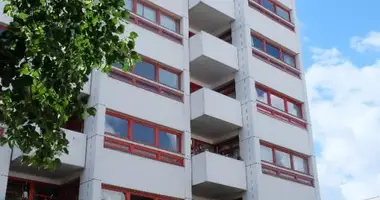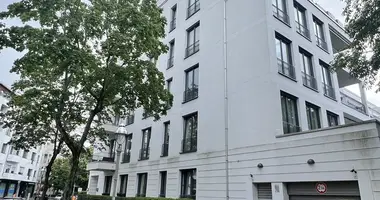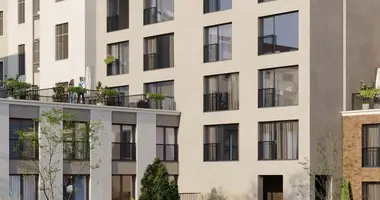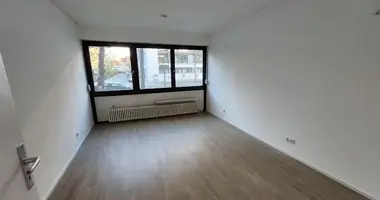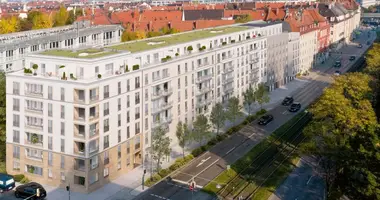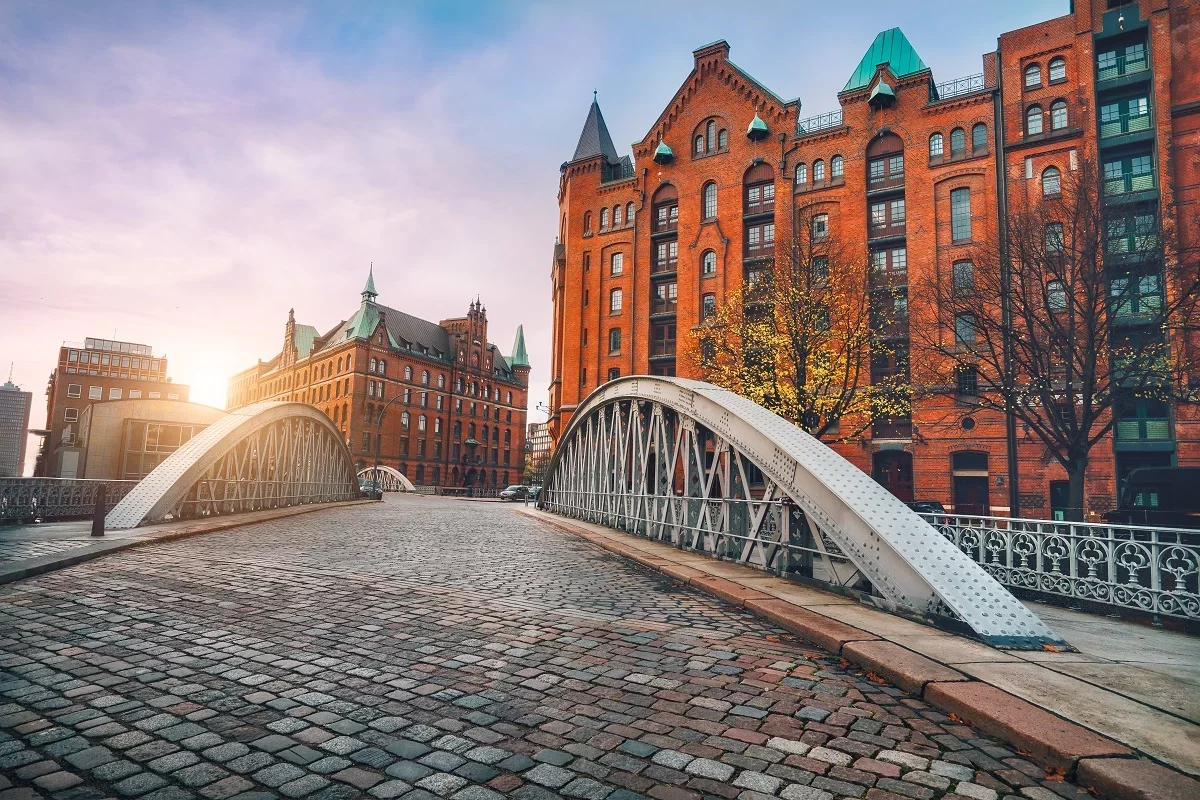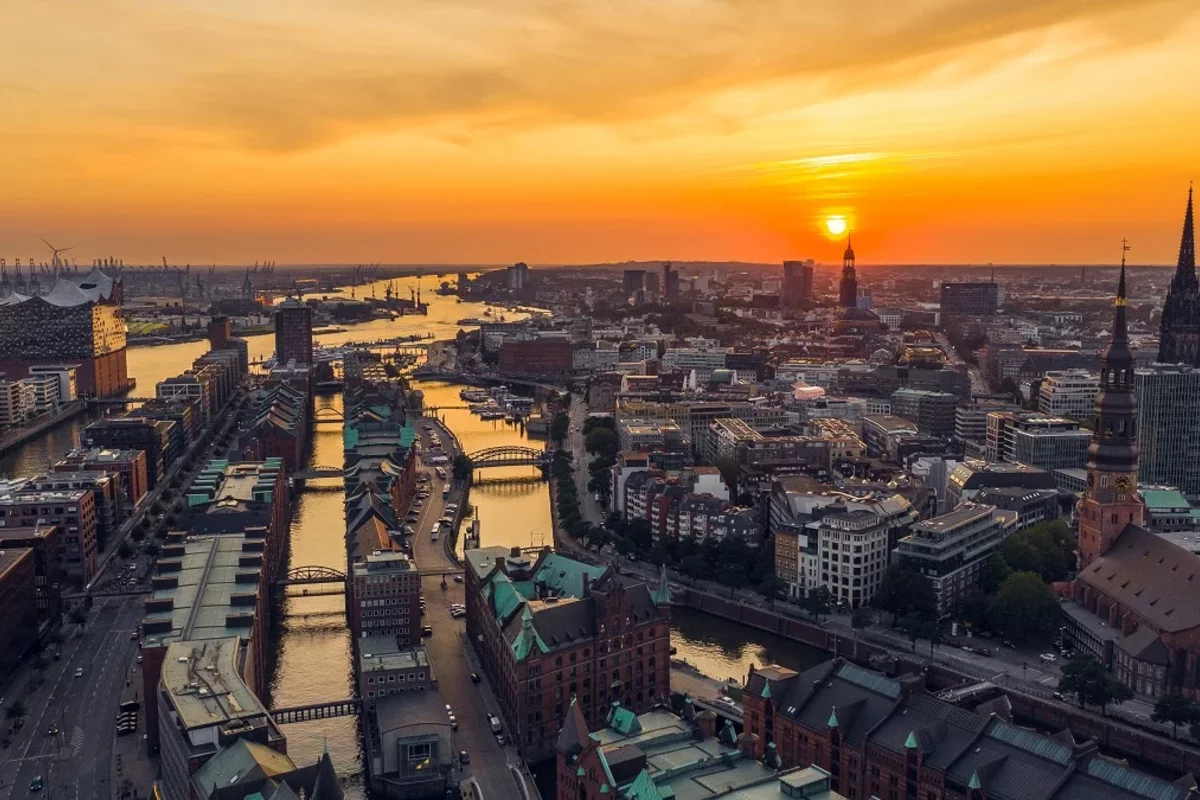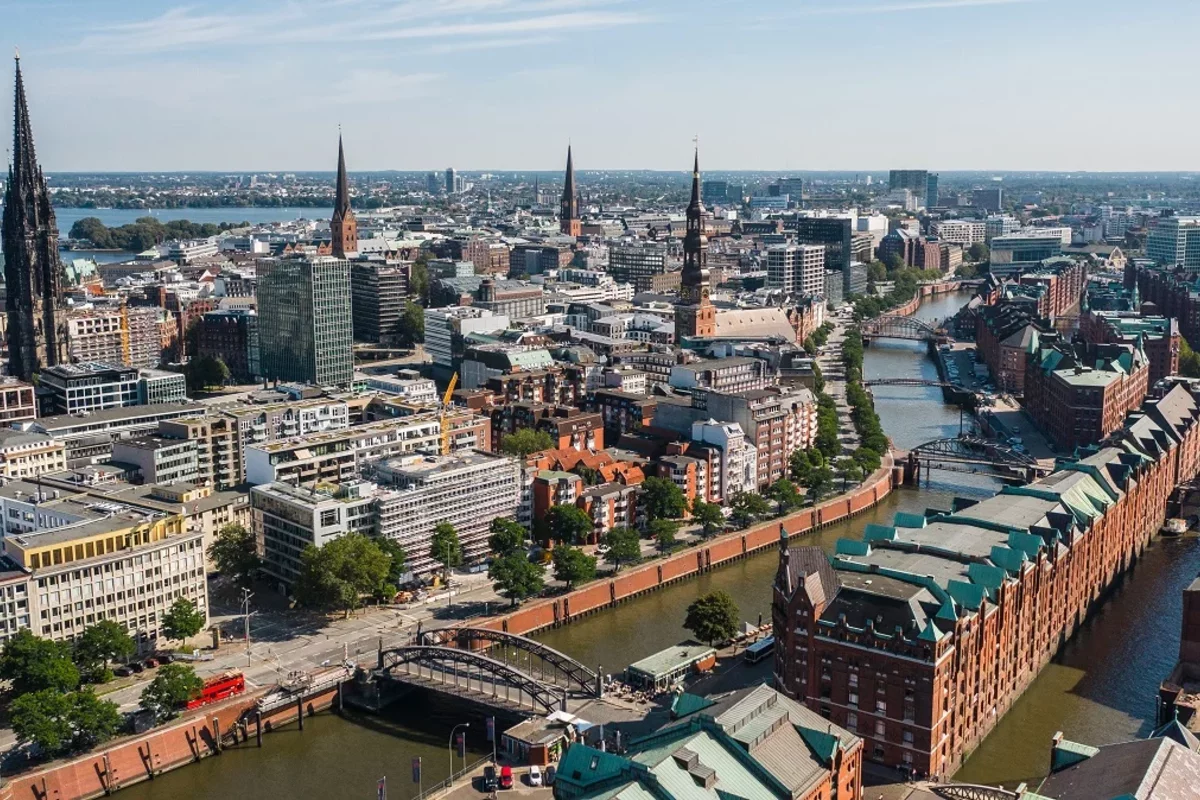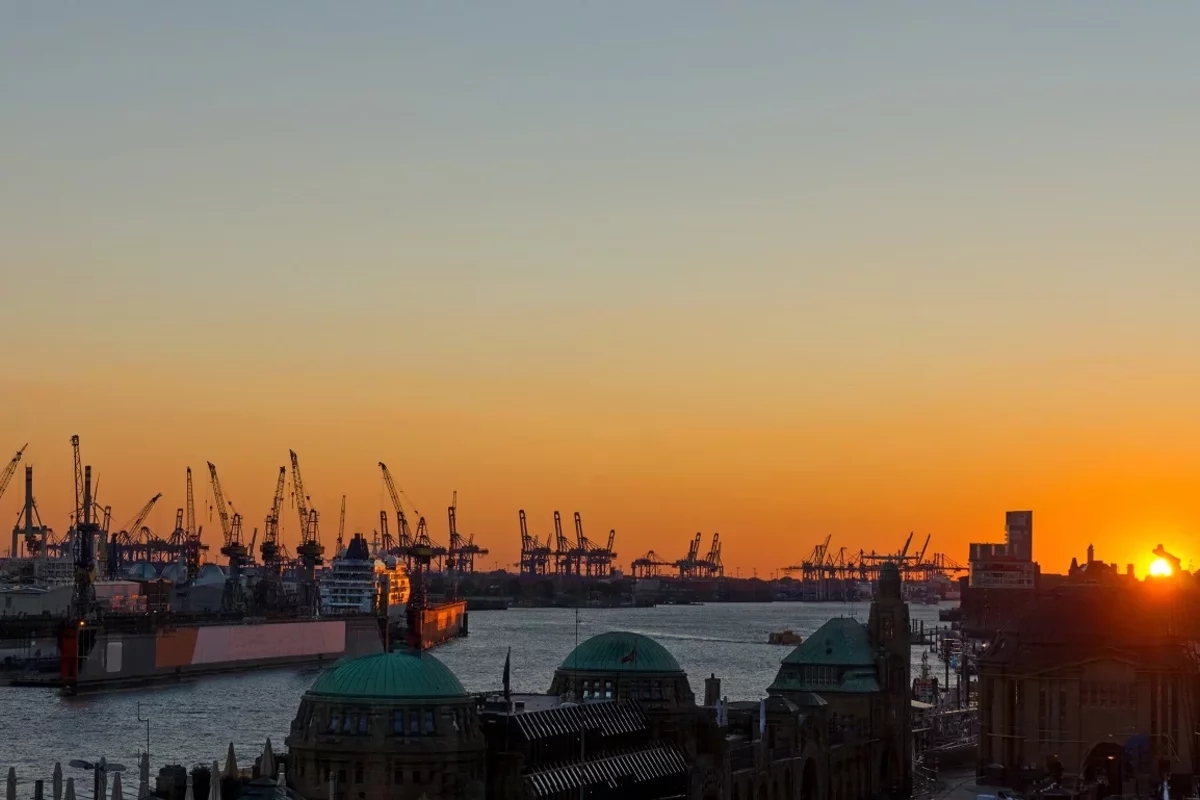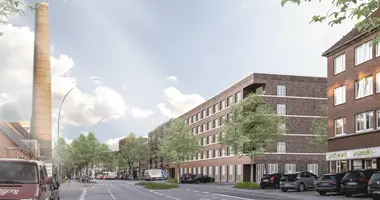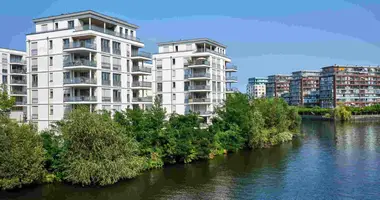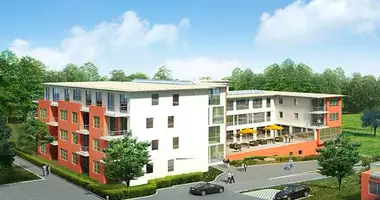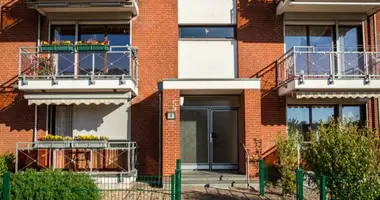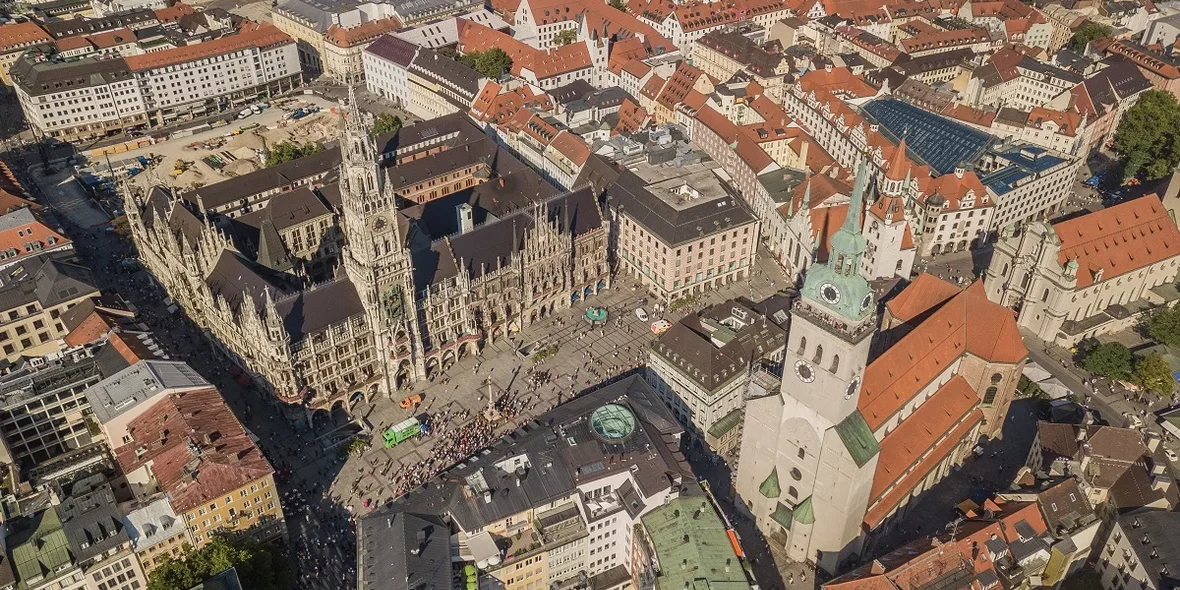
Top 5 German Cities: Experienced Immigrants on the Pros and Cons of Living in Berlin, Munich, Hamburg, Stuttgart, and Leipzig
Do you want to live in Germany, but have not yet decided on a city? It’s no wonder, because there are more than two thousand of them in the country. Our big overview will help you: you’ll hear from residents of very different and interesting German cities how life in their city is arranged in practice and what the pros and cons it includes.
Everyone has heard about the good quality of life in Germany and its incredibly beautiful nature: from sandy beaches and gloomy forests to the mountain ranges of the Alps. However, Germany is different and there are different ways to live here. One thing is certain: everyone can find a place to his liking. We chose 5 cities for our review — Berlin, Munich, Hamburg, Stuttgart, Leipzig — and asked their residents what it’s really like to live in each of them.
Berlin
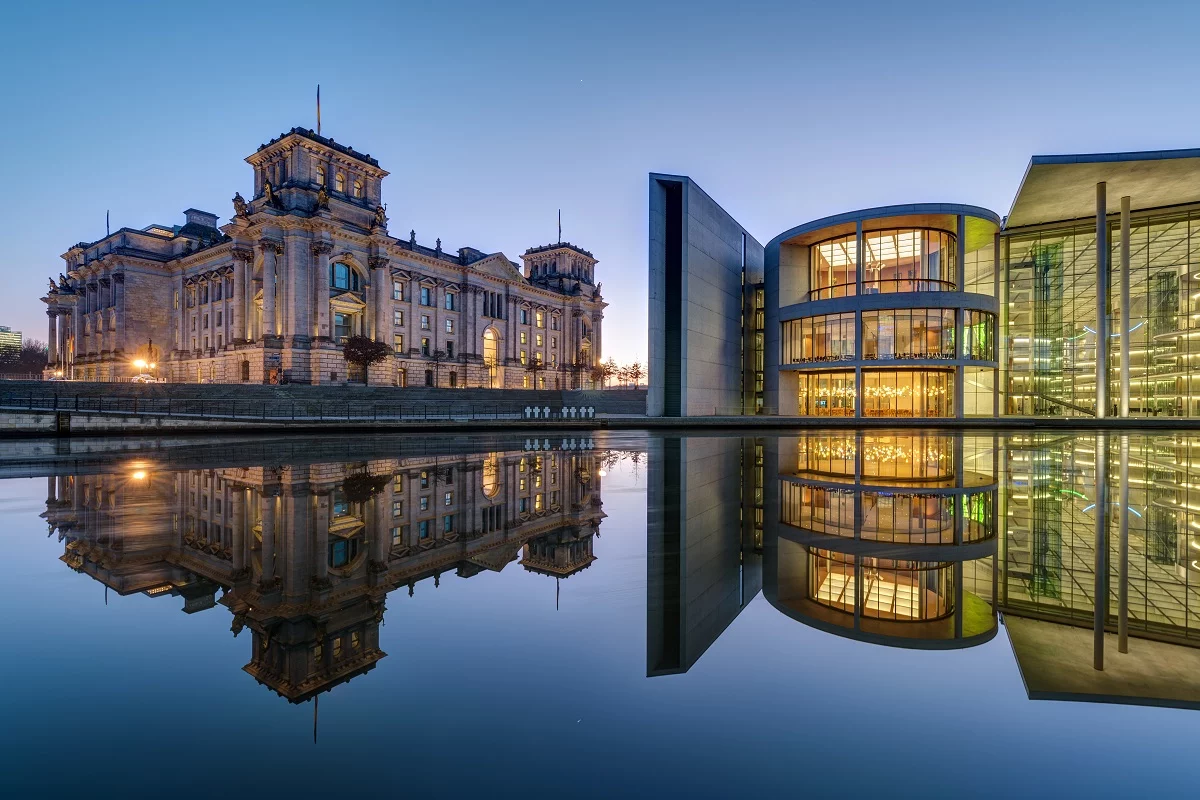
Berlin, the capital of Germany, opens our review. This is a city of contrasts and all kinds of subcultures, a city of art and an incredible sense of style, a city where historic buildings are in harmony with modern architecture. Berlin is said to be «poor, but sexy»: even if the city looks poorer than the rest of Germany, it is its «soul», its «nerve» that attracts.
Almost 4 million people live in this major European city. Each of the 12 districts that make up Berlin has its own unique charm. The most important places in the city are concentrated in the Mitte district: everything from the Brandenburg Gate to Museum Island is there. The nightlife in the German capital also «boils»: fans of electronic music from all over the world gather in the local clubs, and clubs, by the way, can be found even in abandoned basements and industrial buildings. It is not for nothing that Telegraph magazine called Berlin the «funniest» city in the world — you won’t get bored here.
Berlin is considered an inexpensive city compared to other Western European capitals. Here are some important figures:
The average salary in Berlin is €4200–€4300 gross/month.
The average cost of renting a one-bedroom apartment in Berlin is €1000–€1500/month.
Average cost of living in Berlin (with rent) — €2100–€2300/month.
The highlight of the city. Berlin has the largest and most famous zoo in the world, which opened in 1844. It is located in the central district of Tiergarten and covers an area of more than 35 hectares.
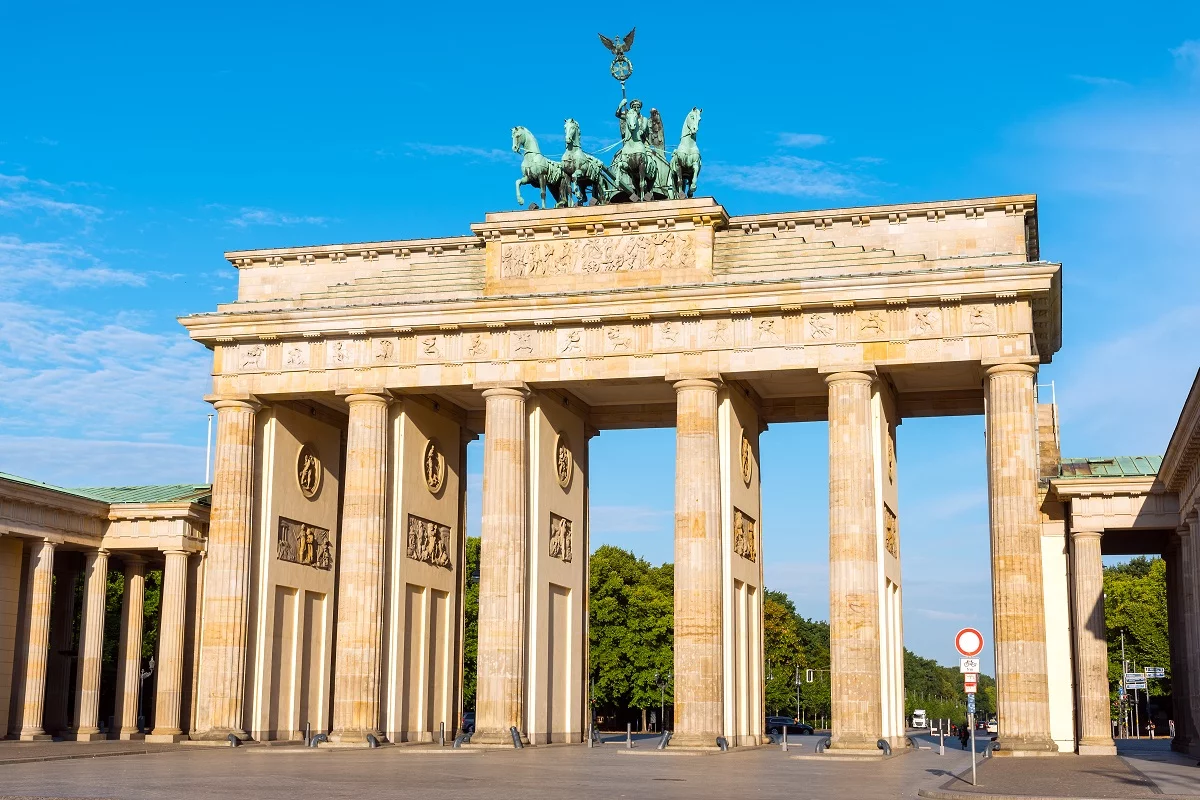


About Berlin and life there told us Alyona, who has lived there for 7.5 years (the interview was conducted in 2023).
— Here are the pros and cons of living in Berlin, in my opinion:
Pros:
- Berlin is super international, creative, and versatile. Here you feel free and uninhibited. No one will judge your appearance, so you can stand out however you want.
- Transport infrastructure in the city is very well developed. In the city there are streetcars, buses, city trains, subway and even river streetcars. The whole network is conveniently connected and you can reach any point in Berlin in 30-60 minutes.
- Some cafes in the city are made of «garbage»: old and shabby furniture (planks, slate, and so on) is used to furnish the place. Nothing goes to waste here.
- Very well developed gastronomy — you can try almost any cuisine in the world.
- In spring, Berlin is colored pink as the sakura blossoms here. The saplings were given to the city by Japan after the fall of the Berlin Wall.
- It is one of the greenest cities in the world. For example, there is a huge park in the center of the city, as well as many lakes and the Spree River.
Cons:
- Berlin is a pretty dirty city. Not everywhere, of course, but there is plenty of trash. There is often an unpleasant odor under bridges, in crosswalks, and in stations.
- There are many homeless people and beggars in the city, especially at train stations. In public transport you can often see a homeless person sleeping and smelling horribly.
- Often there are freaks who behave very inadequately, smashing things, yelling, or defecating in public places.
- In tourist areas, it is desirable to keep track of their belongings, otherwise they can be stolen.
As far as the cost of living is concerned, Berlin was and still is, in principle, one of the cheapest cities in Germany. But with the influx of refugees since 2014, prices of real estate in Berlin have risen sharply. For example, in 2015, it was possible to rent a 2-bedroom apartment in Berlin for 500-750 euros, but now this figure is multiplied by two. The cost of the food basket has also increased: in 2015, for one person was enough 75-150 euros per week, now twice as much. A family of three needs at least 3,000 euros per month to ensure a comfortable life and even some entertainment.
Speaking of entertainment. Here you can find activities for all tastes. There are many night clubs, about 150 museums, two zoos, gardens (Garten der Welt, Botanische Garten, Britzer Garten), exhibitions, galleries, theaters, cinemas. Sports activities are also plentiful: bungee jumping, swimming on the Spree, races at different distances (the Berlin Marathon sets world records), bike rides. You can also picnic in any park, go horseback riding in the woods, and pick berries and fruit in the fields and gardens outside the city (you only pay for the basket, and you can eat as much as you like).
Berlin has a non-obvious and interesting architecture: since the city was badly damaged during World War II and was divided for a long time, different styles have taken root here, which create an amazing atmosphere. There are royal palaces in and around the city, not far from Berlin in the town of Potsdam you can visit the huge palace and park complex Sanssouci, which survived the war. Berlin is also the city of graffiti, and there are even guided tours of the city’s most famous murals. And in October, they hold a festival of light: all the sights are illuminated by various light projections — it looks mega-cool.

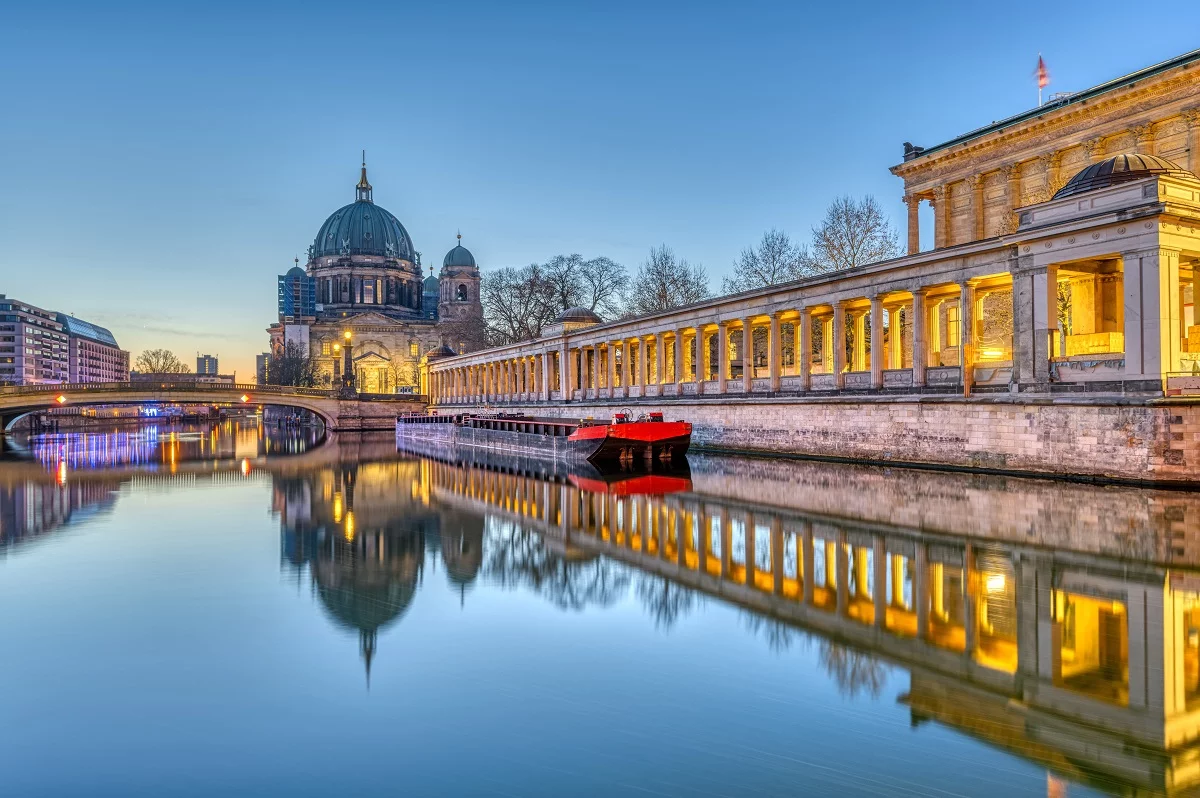
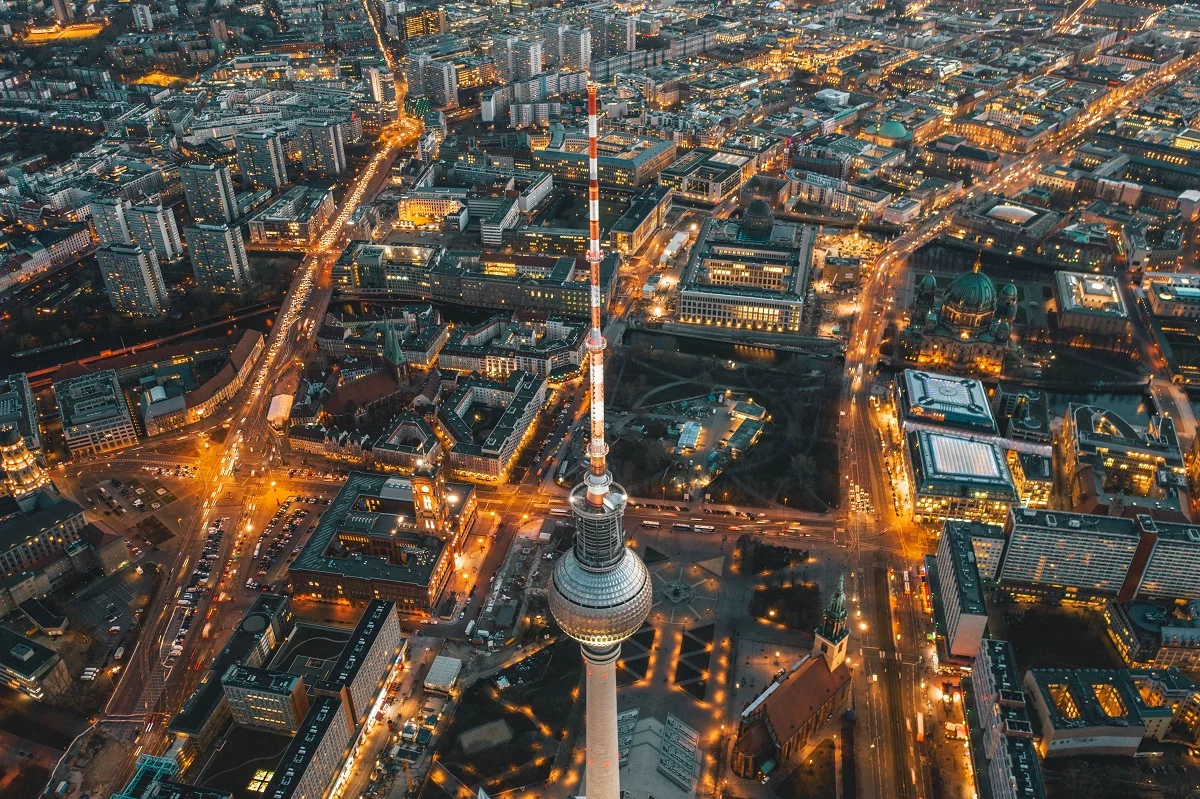
On the pros and cons of living in Berlin Nadezhda also shared her observations with us:
— Pros:
- A large, rhythmic and green city with everything you need to live. At the same time, despite its scale, the city is pretty quiet.
- Everyone is very dogfriendly, although there is a duty to wear a leash everywhere except in special areas (this duty all violate, of course).
- The infrastructure is developed in all areas of the city, that is, for coffee and the necessary stores no need to go to the city center.
- Lots of big water: boats and ferries are common here.
- Huge Russian-speaking community, there are different groups, events, concerts.
- Nice people — a hundred times less rudeness than in the same Bavaria.
- The endless number of eateries for every budget, a takeaway lunch for 4 euros is not a myth.
- Stores are open until 10 p.m., which is nonsense for Germany.
- Späti culture is widespread — 24-hour grocery stores with normal prices: these are echoes of the shift work in the GDR, when people came from the factory and had to buy something to eat.
- Diversity in everything: you can find a glamorous life on Ku’damm with Louis Vuitton and silicone, you can live in a dorm in Neukölln with artists, you can live in the countryside and graze sheep, you can live in a loft with a view of the TV tower — in any case, it will be a typical Berlin.
- The measures here are not about the city, but about its neighborhoods, so different it is.
- There’s a sense of home when you get lost in the crowd here (just like in St. Petersburg) — it’s inexpressible.
- Excellent infrastructure for children: playgrounds and parks every 500 meters.
- It’s still a pretty cheap city. There are a lot of budget flights to different parts of the world.
Cons:
- It doesn’t look like cozy, clean Europe here. There is a lot of trash. Transportation is a little dirty.
- Crime is higher than in many European cities, but you still have to look for it.
- The lack of an actual city center. Mitte is more of a dot on the map than a center. But there is a sense of it in the West of the country.
- Berlin is a relatively poor city, you can feel it sometimes.
Actual residential properties in Berlin
Munich
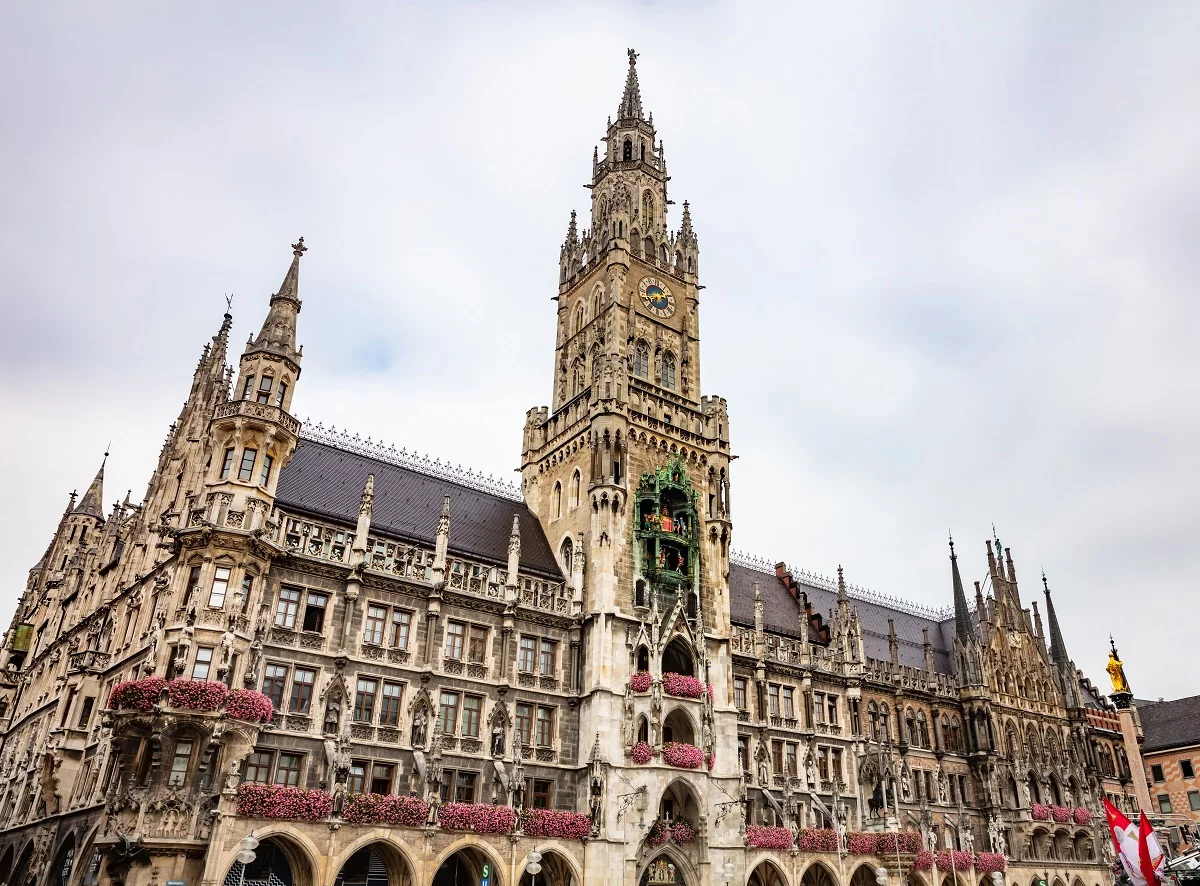
Now it’s time to get to know the capital of Bavaria and, as we all know, the beer center of the world — the city of Munich. The city was founded by Benedictine monks, so it’s not uncommon to find a monk here. It’s also an ideal place to soak up industrial romance and take a stroll through the medieval streets.
You can’t find a beer tradition like Munich’s anywhere else. And that’s not just because the city hosts the famous Oktoberfest — beer has been part of Munich life for seven centuries, and the number of giant breweries and beer gardens shows this.
In addition to pubs, Munich has a lot of art: the art district of Munich Kunstareal, the Old Pinakothek, the New Pinakothek, as well as museums dedicated to Oktoberfest, porcelain and BMW cars (Munich, by the way, is the home of the company).
And here is another curious fact: in 2018, the British magazine Monocle named Munich the most livable city in the world. But despite this, to live here, you also need to earn a lot — compared to other German cities, Munich is very expensive.
The average salary in Munich is €4700–5000 gross/month.
The average cost of renting a one bedroom apartment in Munich is €1400–2000/month.
The average cost of living in Munich (with rent) — €2500–2700/month.
The highlight of the city. The locals use a unique word that cannot be so easily translated into other languages — Gemütlichkeit. It means coziness, well-being and relaxedness all in one and thus embodies the local approach to life and the magical atmosphere.
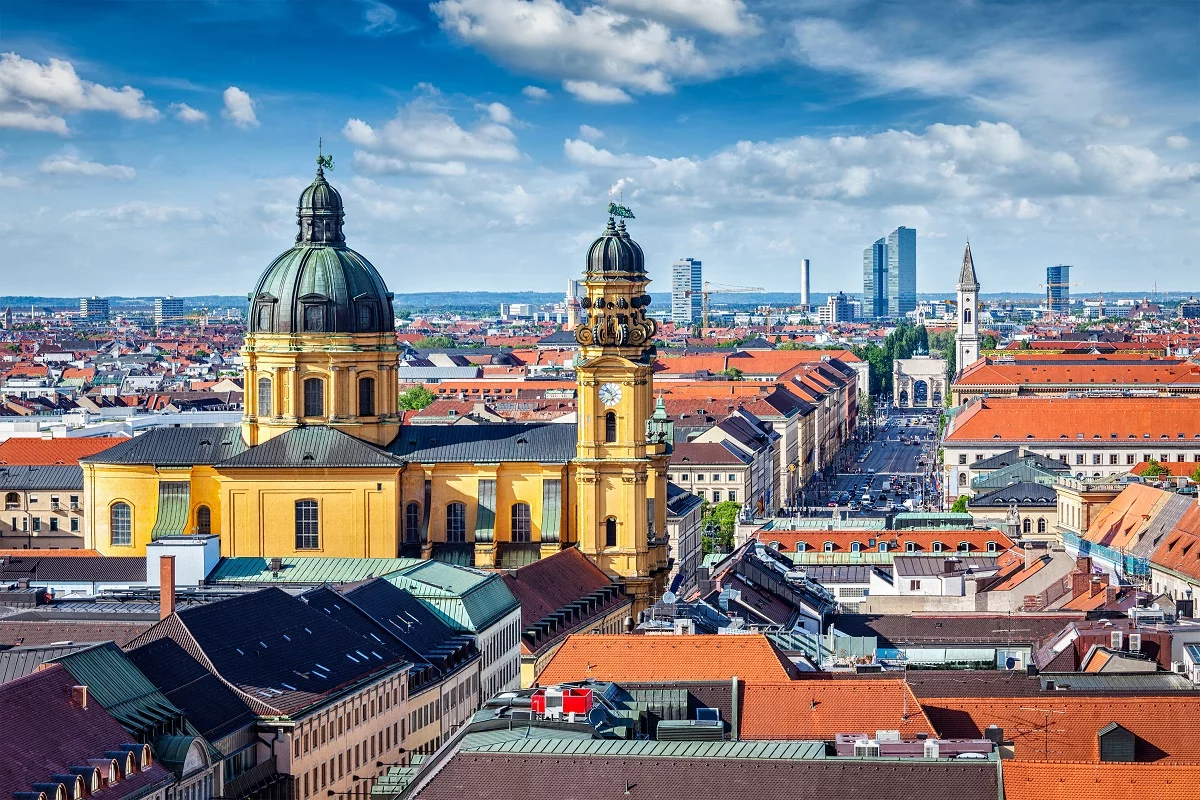
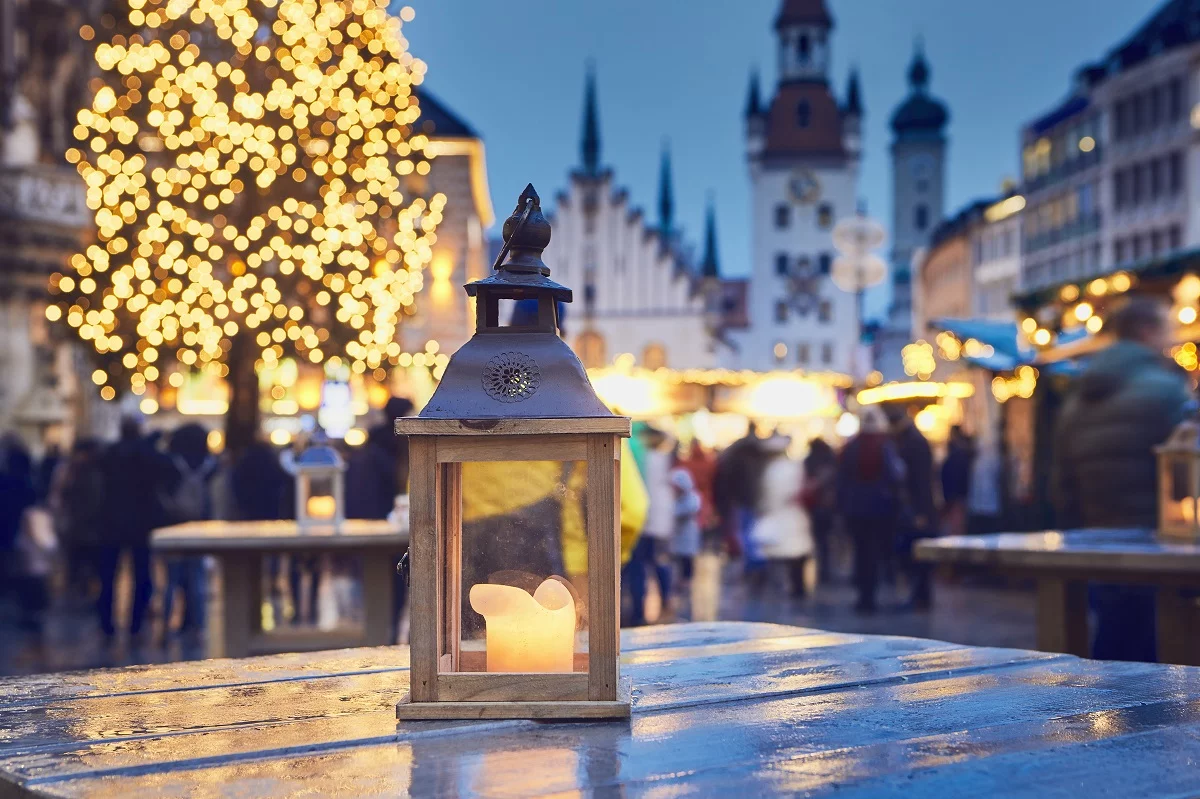
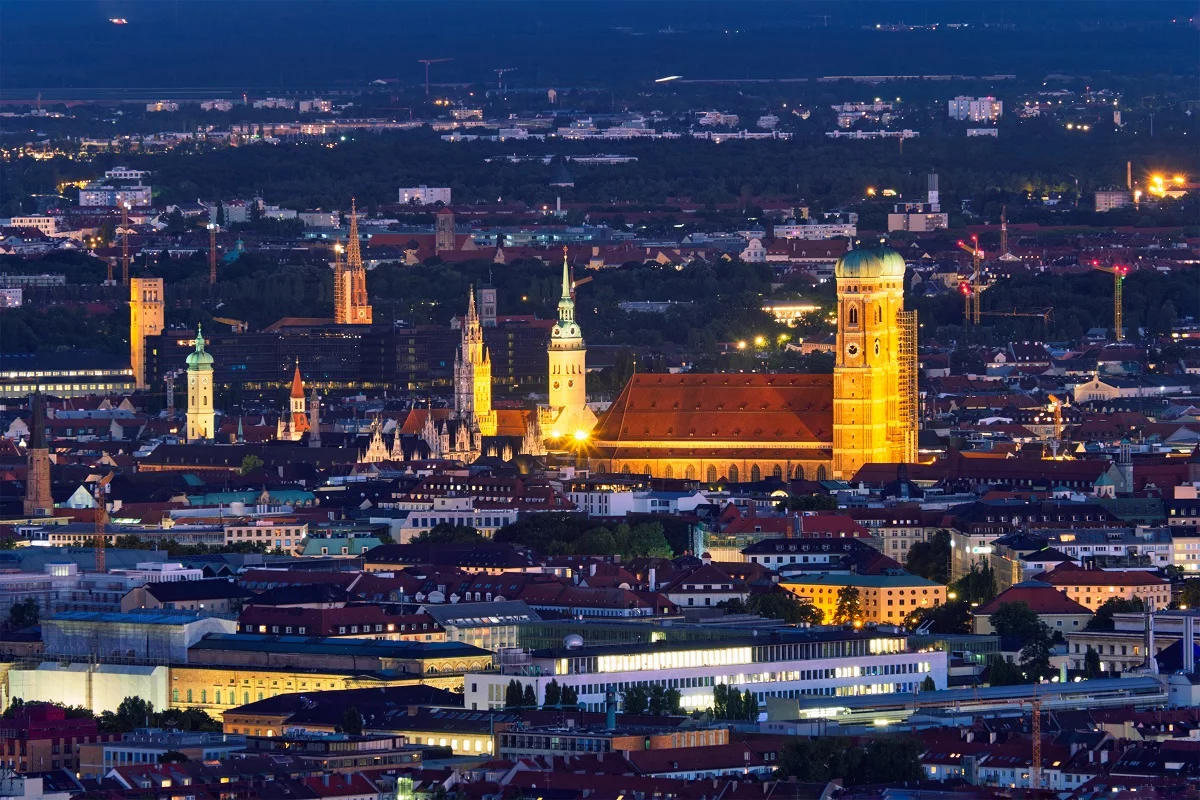
Irena, who has lived in Munich for more than 12 years, told us about the peculiarities of life in Munich (the interview was conducted in 2023).
— The advantages of living in Munich:
- A very high level of safety. For more than 10 years, Munich has been annually recognized as the safest major city in Germany.
- The best food in the whole Germany. The fact is that agriculture around Munich is well developed, unlike in other parts of the country. This is especially true of the meat and dairy industry, because cattle graze all year round in the Alpine meadows. And Munich’s food market Vitualiemarkt is recognized as the best in the country. The quality of the beer is known without me.
- Comfort and unhurried way of life. Not without reason Munich is called the village of millions: despite the fact that the population of this city is close to 1 million 600 thousand, the city is very cozy, without high-rises and skyscrapers, with lots of bike lanes. And the locals go to the beer gardens with thousands of seats to relax.
- A unique preserved culture. Only in Munich do people wear the national costume «tracht» all year round on any occasion — men in authentic leather pants and women in elegant sundresses.
- The proximity to the Alps and the magnificent nature is impossible to resist. Even 80 km from the city there are mountains with plenty of hiking trails in summer and skiing in winter. Also in the vicinity there are dozens of lakes with clear water, where you can just relax, do water sports or take a boat trip.
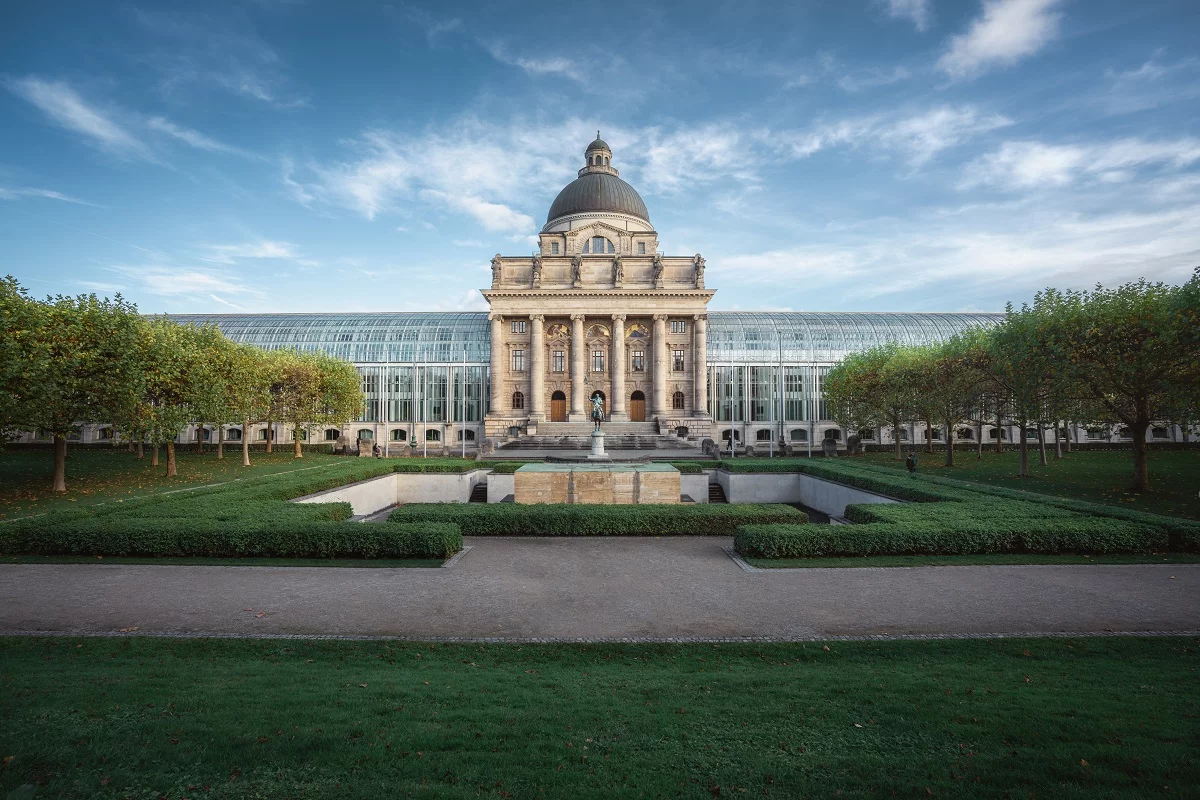
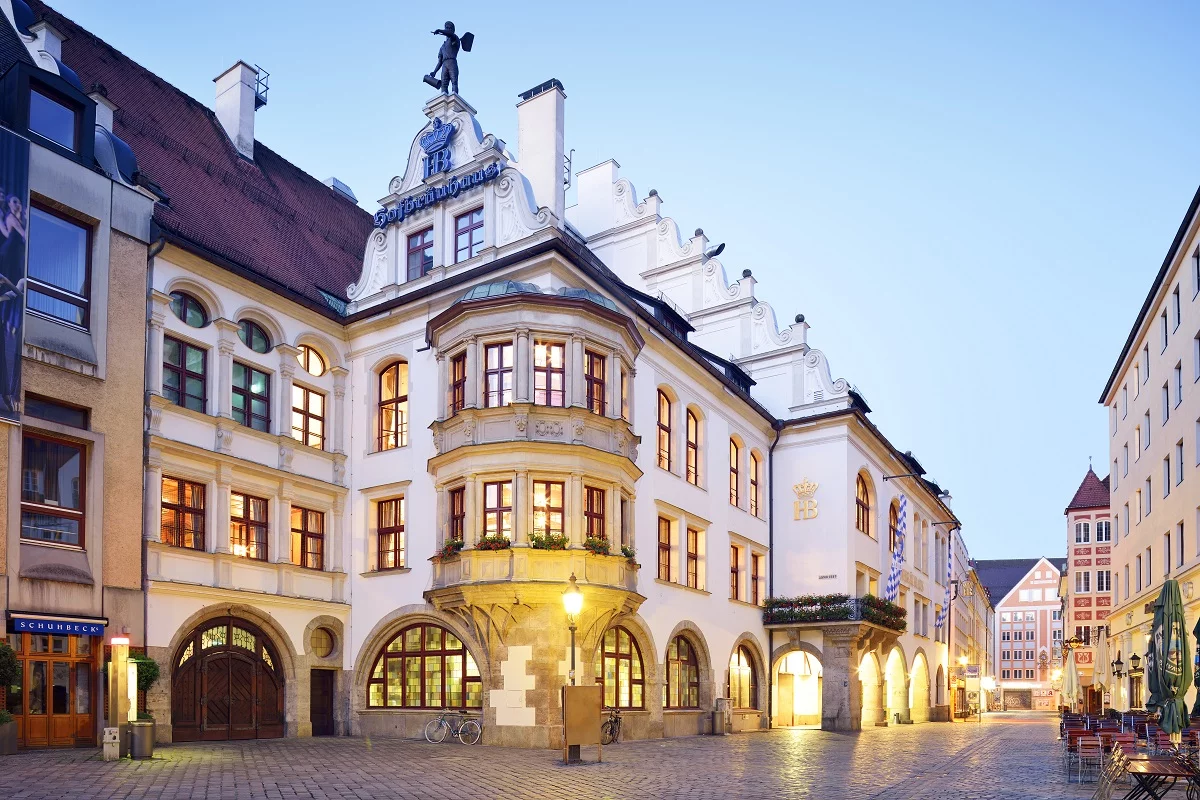
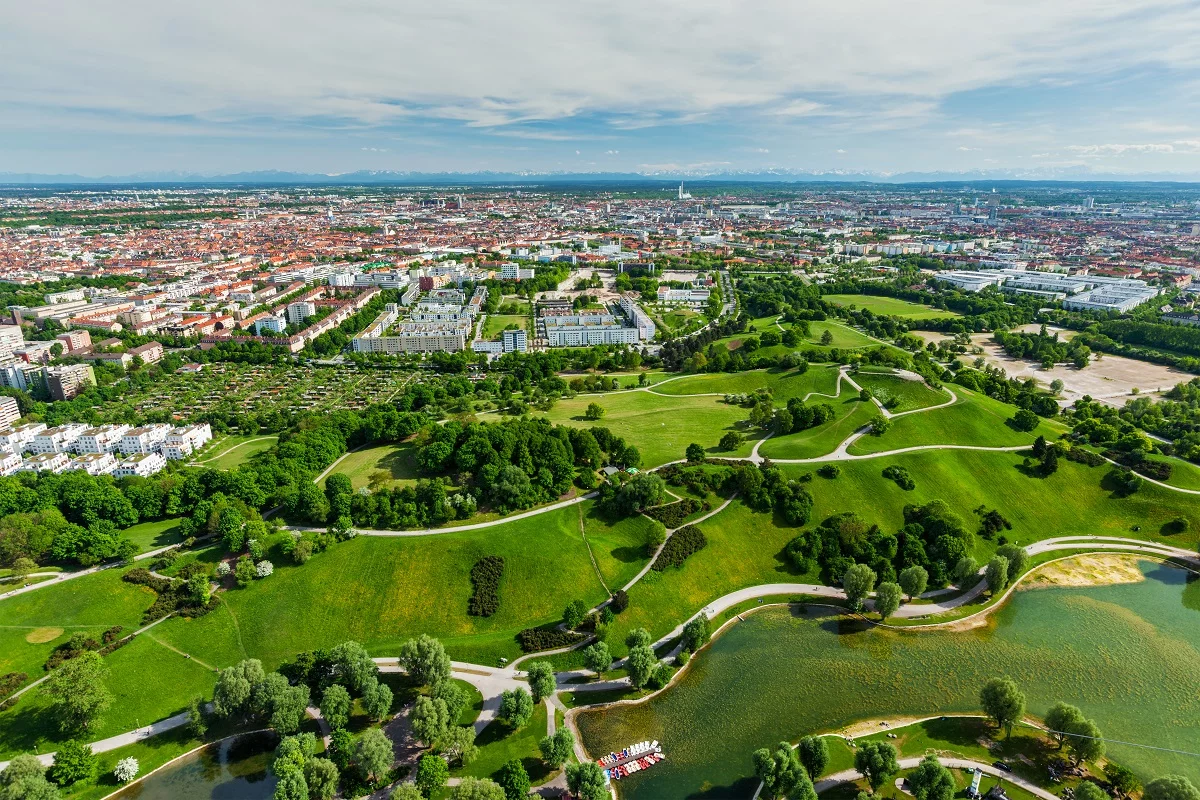
Now about the downsides:
- Munich is the most expensive city in Germany. Of course, here the salaries are high, but also the prices are the highest, especially when it comes to renting or buying german residential property. For example, in Munich they are twice as high as in the German capital Berlin (when buying, the average price is about 10,000 euros per square meter).
- Munich has a very high population density: there are about 5,000 inhabitants per square kilometer. At the same time, the population continues to grow, and the boundaries of the city do not change. By 2030, Munich is projected to have 1 million 800 thousand people. In Berlin, by comparison, the density is 30 percent lower. To give you an idea, even in the huge English Garden or along the Isar River on a nice summer day there is no place for an apple to fall.
- Frequent traffic jams in the city and at the entrance/exit. This is especially true during the vacation season: everyone goes through Munich to the mountains or to Italy. Inside the city there is a constant problem with parking.
Actual residential properties in Munich
Hamburg
Next in our review is the ancient but always young Hamburg, situated on the banks of the River Elbe. Since Hamburg is the largest port as well as the city of bridges and canals (there are almost 2,500 bridges!), it is literally saturated with the spirit of the sea.
Hamburg is home to almost 2 million people. Not only do they have lush parks and gardens, unique museums and ancient churches, but also many bars and nightclubs. And every winter the city hosts the Venice Masquerade «Magic of the Masks», which immerses its guests in the atmosphere of bygone eras.
Living in Hamburg is also not cheap, but in general, you can find food for all budgets. For example, a standard meal at a McDonald’s will cost you €8, an inexpensive lunch for one at a café is about €11. If you want to have dinner at a good restaurant, you should spend about €57 for a menu for two with drinks. Here are a few more figures to look out for:
The average salary in Hamburg is €4000–4500 gross/month.
The average cost of renting a one bedroom apartment in Hamburg is €1000–1400/month.
Average cost of living in Hamburg (with rent) — €2100–2200/month.
A highlight of the city. The Fishmarket is very popular in Hamburg. It's a legendary place in the city, whose history dates back to 1703.
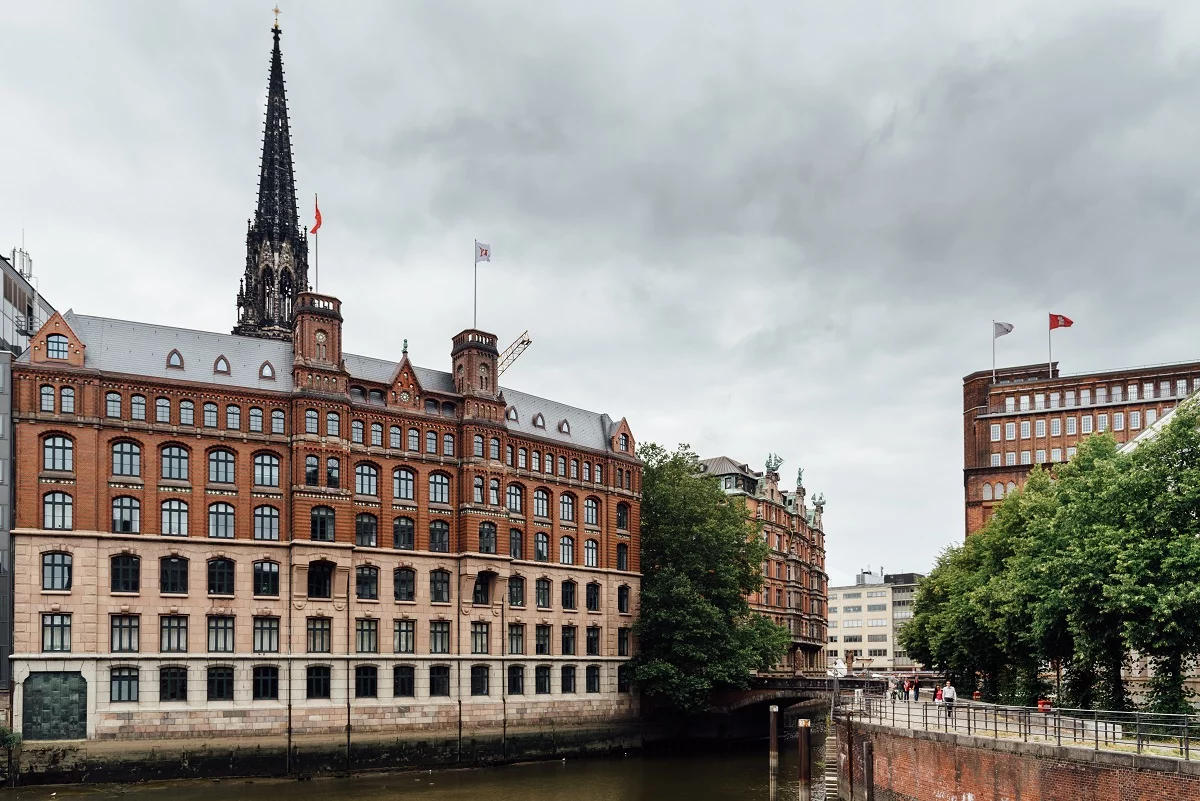
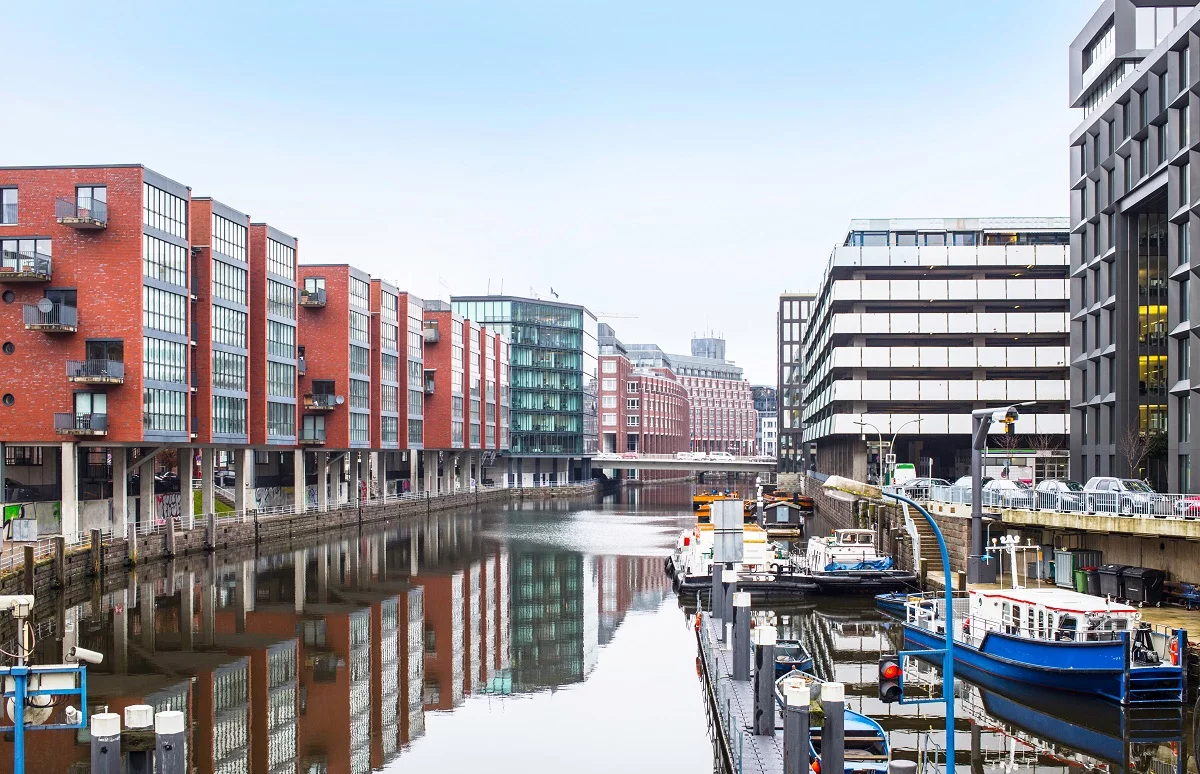
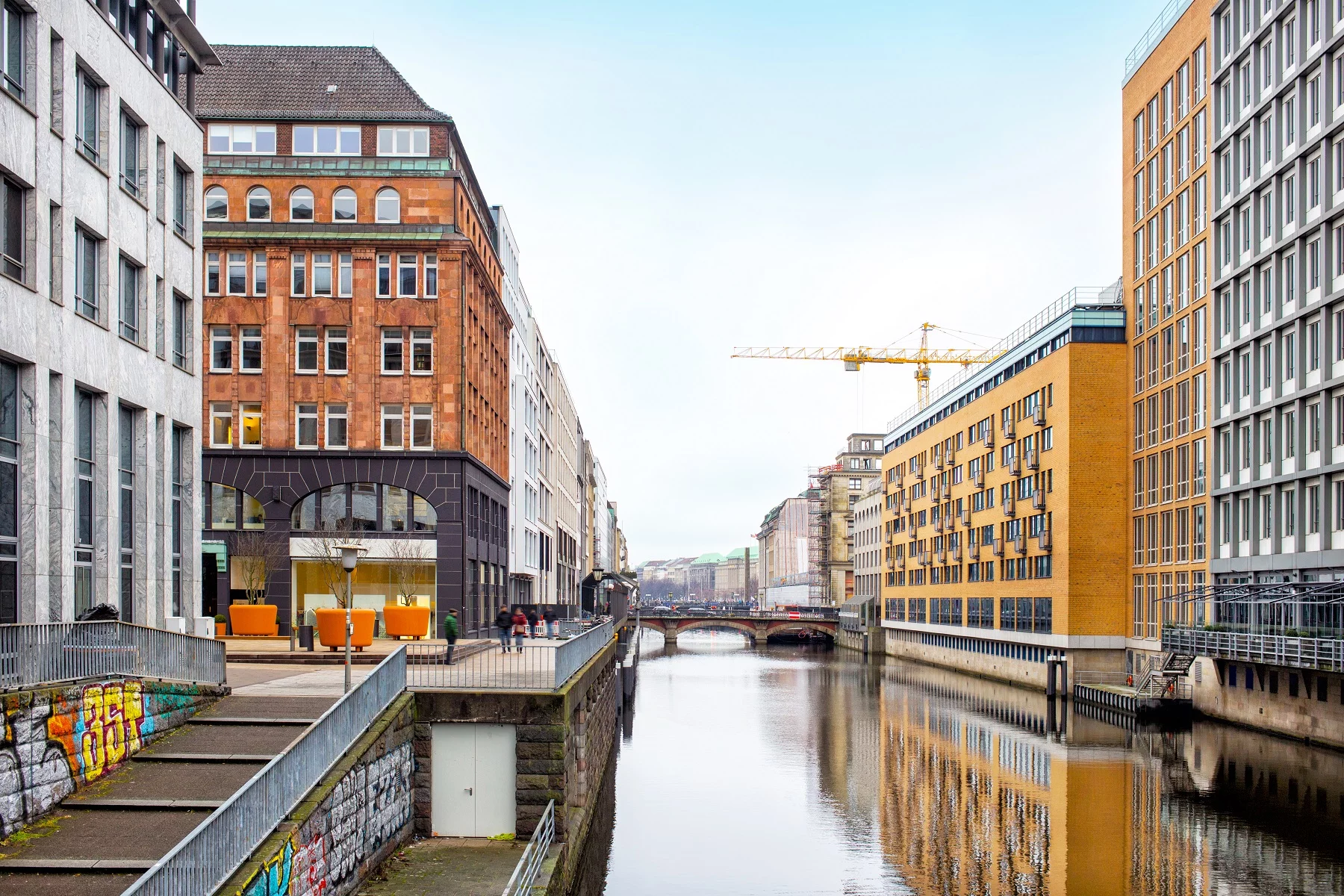
Ivan, who has lived there for eight years, told us about the peculiarities of life in Hamburg (the interview was conducted in 2023).
— The most important advantage of living in Hamburg for me is being able to travel all over Europe. Germany is relatively in the center of Europe and any neighboring country can be reached by car. Here are other important aspects that I can point out:
- An undoubted advantage of Hamburg is a fairly high standard of living, decent working conditions, good wages.
- Housing conditions are also excellent: you can always find spacious and comfortable housing at more or less affordable prices.
- I should point out that the political situation in Hamburg is calm and generally transparent, and the police can be trusted here.
- I would put health care in the category of both pluses and minuses of living in Germany. The pluses are the way health insurance works: people here are even treated for cancer with insurance. On the downside, there are constant queues and a lot of incompetent workers.
- Food prices in Hamburg are very reasonable, you can afford to eat whatever you want. But services cost a lot more, because human labor in the country is expensive. Most of the money may be spent on insurance, repairs, taxes and fuel. For example, many Germans ride a bicycle, because the cost of a car is a real burden on the wallet.
- In general, I can say this: everything a person needs to be healthy, well-fed and happy here is not too expensive, but if you want entertainment and luxury — then get ready to spend a lot.
Actual residential properties in Hamburg
Stuttgart
We move on to Stuttgart, the city of palaces and the capital of the German car industry.
Stuttgart is the administrative center of Baden-Württemberg, which is home to over 600,000 people. Wine and car lovers will definitely enjoy themselves in this city. Firstly, the offices and factories of Bosch, Porsche and Mersedes-Benz are located here. Second, Stuttgart is surrounded by vineyards and valleys. Every summer you can sample over 500 wines from the Württemberg and Baden regions in the Stuttgarter Weindorf (wine village). The hills that surround Hamburg are both an advantage and a disadvantage at the same time: on the one hand the hilly terrain offers an amazing view of the city, on the other hand it costs a little more to travel on such a road.
In Stuttgart it is also worth trying the national cuisine of the Swabian ancestors of Stuttgart. For example Flädlesuppe (pancake noodle soup), Maultaschen (dumplings stuffed with potatoes, spinach and minced meat) and the signature drink, Kirschwasser (cherry schnapps with almond flavor).
The average salary in Stuttgart is €4100–4900 gross/month.
The average cost of rent in Stuttgart — €1100–1600/month.
The average cost of living in Stuttgart (with rent) — €2000–2200/month.
The highlight of the city. Stuttgart has a curious local dish — Maultaschen (pasta stuffed with minced meat). In 2009, it was granted protected status as a regional delicacy.
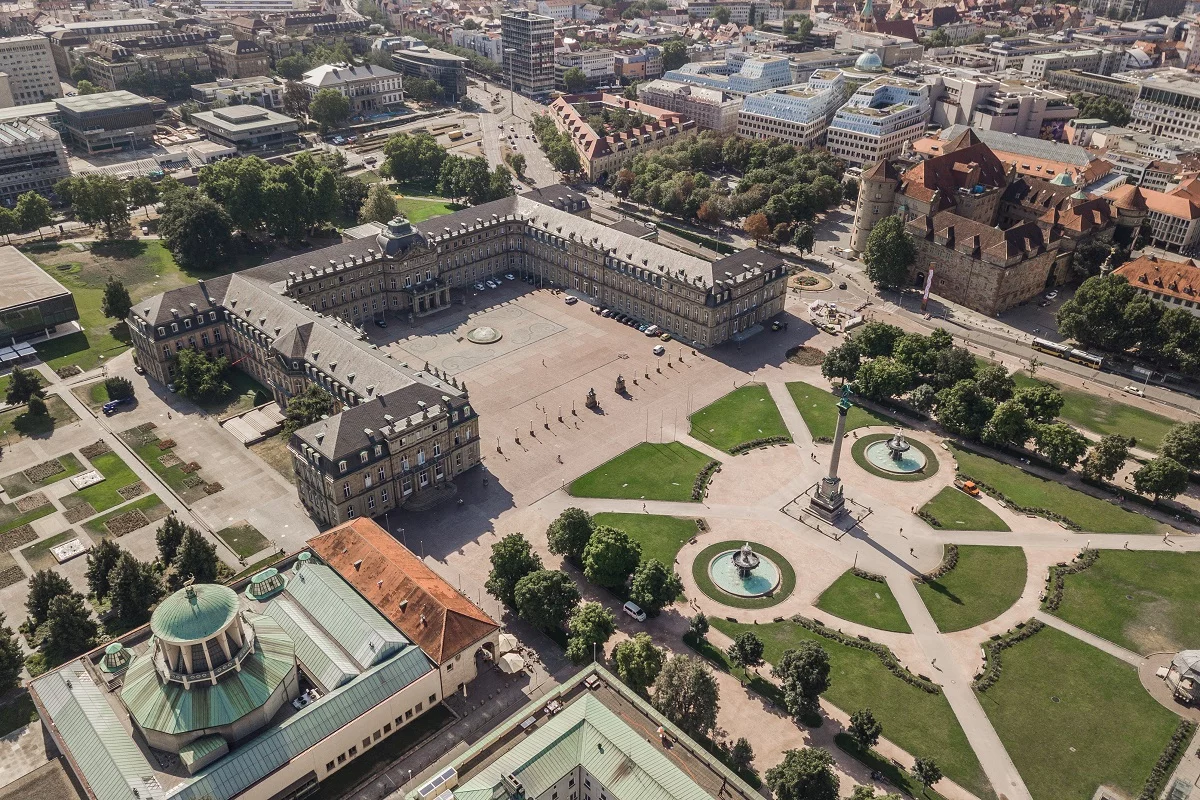
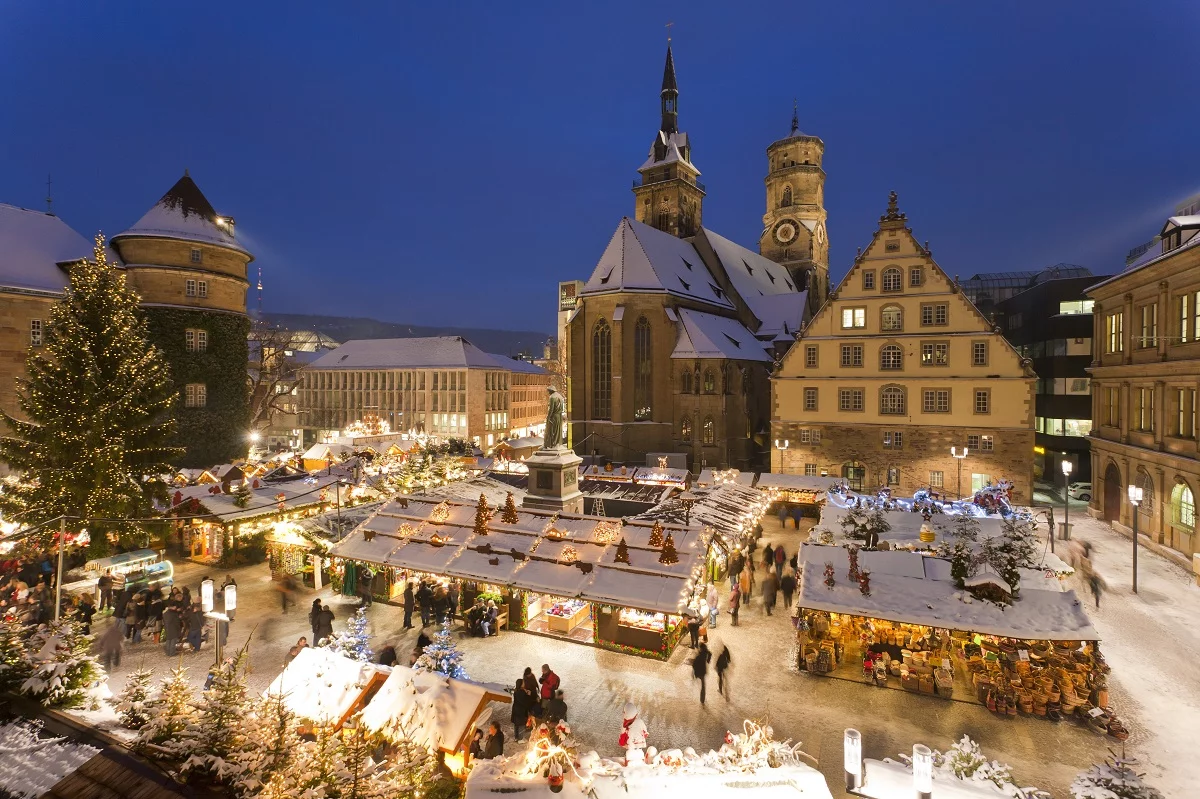
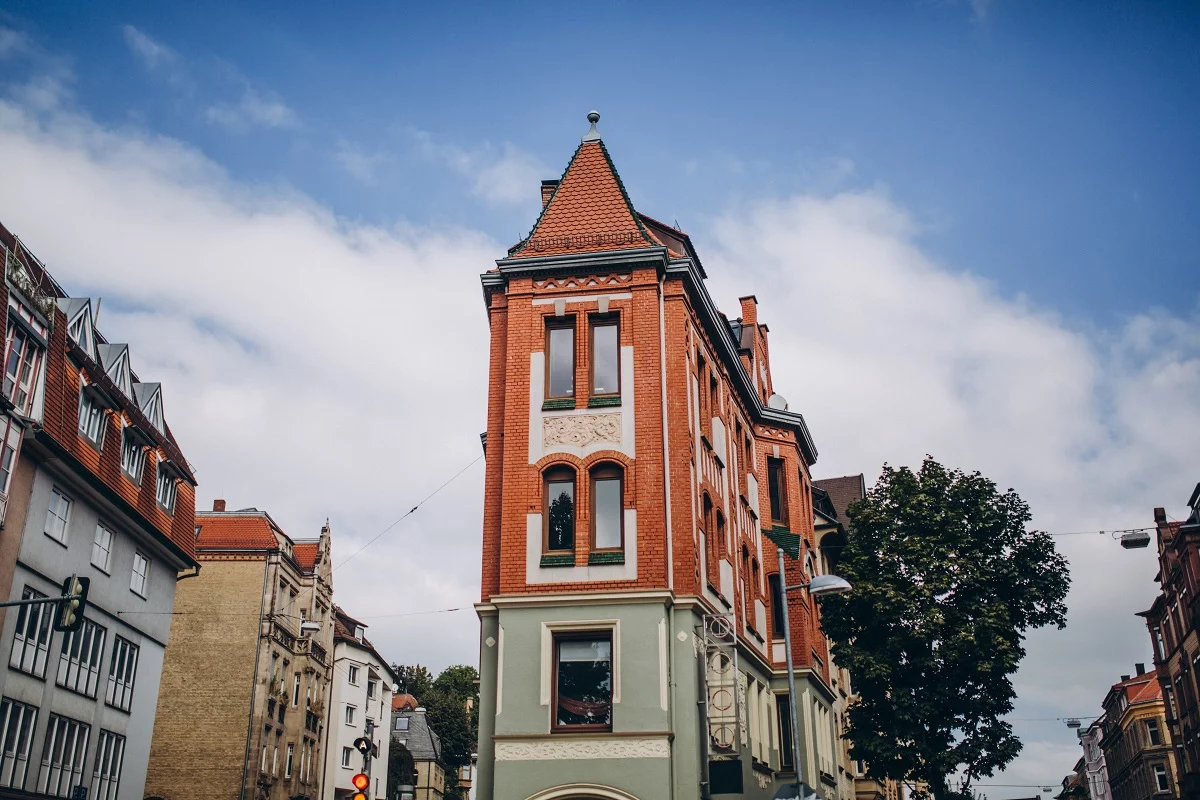
What it’s like to live in Stuttgart told us Olesya, who has lived in this city for 12 years (the interview was conducted in 2023).
— Stuttgart is a beautiful city with lots of opportunities. If you know German, it will be very comfortable to live in. The city is made up of foreigners who speak German. I’ve lived in America and everyone there speaks the same language, but most of them aren’t native speakers at all. That’s exactly how I feel in Stuttgart: we speak German, but everyone around is a foreigner.
For me, the main criterion in moving was good conditions for children. There are no problems with that here: there is a dribble of classes, courses, etc. in the city. And in general, anyone here can find something to their liking.
The infrastructure in Stuttgart is also all right. In my opinion, it is even easier to get around without a car, because parking is expensive and places (especially in the center) are hard to come by.
Prices are soaring all over the world, and it can be felt. Interest rates in Germany are rising, electricity and heating bills have risen several times, it is quite difficult to buy property in Stuttgart and its surroundings, even for people with average income. As for rents, it all depends on the square footage and the type of housing (social or private). For example, to rent a social apartment 90 sqm in older buildings can be for €1000 plus utilities, and it is considered a very cheap option. Renting of newer accommodation will be more expensive — now rent a four-bedroom apartment (not social) will cost €2,000 and above. In general, in Stuttgart a family with two children should have from €3,000 (after tax deductions) to be able to live comfortably and sometimes afford to «go out».
Actual residential properties in Stuttgart
Leipzig
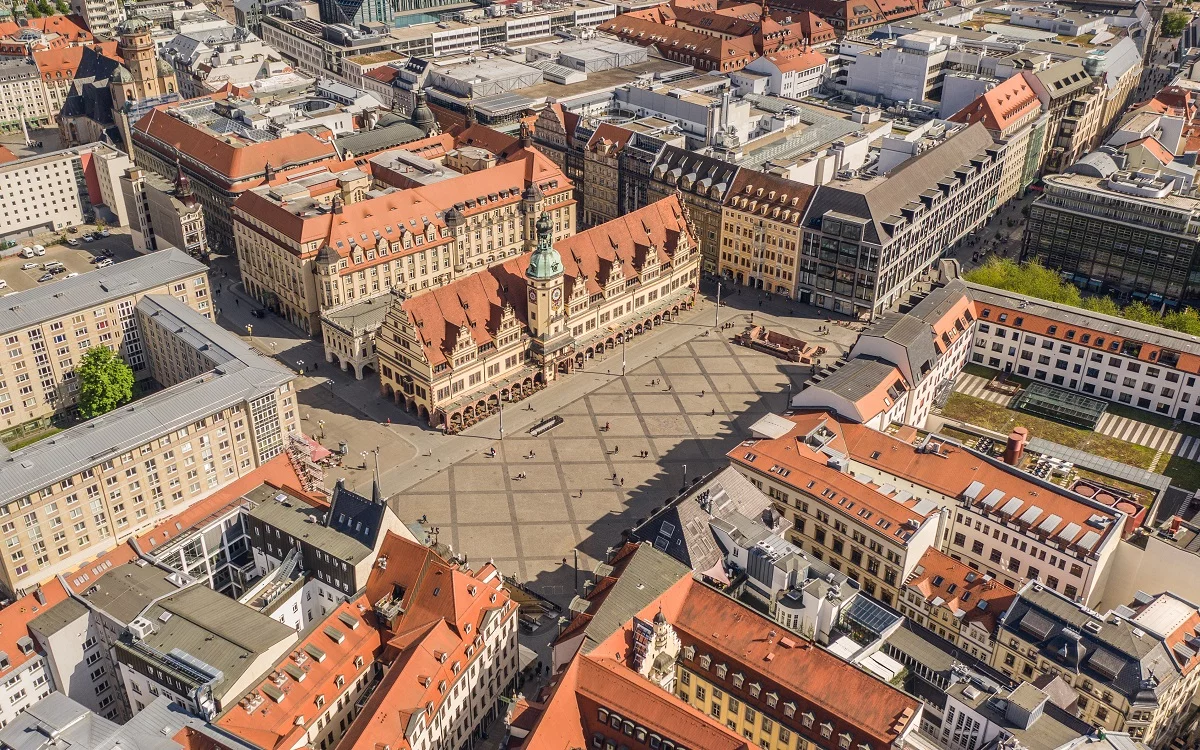
Leipzig, a major Saxon city in central Germany, concludes our review. It has been called the «German Prague», the «Little Venice» and the «German Paris». It has also earned the title of the architectural capital of Germany, as the entire city is dotted with historic buildings of different styles. Well, not for nothing the official motto of the city is «Leipzig. Place of diversity» (Leipzig. Ort der Vielfalt). The Saxon metropolis has almost 570,000 inhabitants.
A separate symbol of Leipzig are the fairs. They were first held here in the 12th century and they are still successfully held today. The pearl of Saxony is also famous for its University of Leipzig: Friedrich Nietzsche, Johann Goethe and Angela Merkel all studied here.
Leipzig is fortunate in terms of location and transport infrastructure. In addition to perfectly connected road, rail and air transport, there is also an international airport. In general, it is easy to get around the city simply on foot or by bicycle.
Leipzig is still an incredibly affordable option, even compared to Berlin. Examples of this are expressed in the following figures:
The average salary in Leipzig is €3200–3700 gross/month.
The average cost of renting a one bedroom apartment in Leipzig is €700–900/month.
The average cost of living in Leipzig (with rent) is €1300–1600/month.
The highlight of the city. In Leipzig there is a famous restaurant «Auerbach’s Cellar». This is where Faust and Mephistopheles from Goethe’s Faust met.
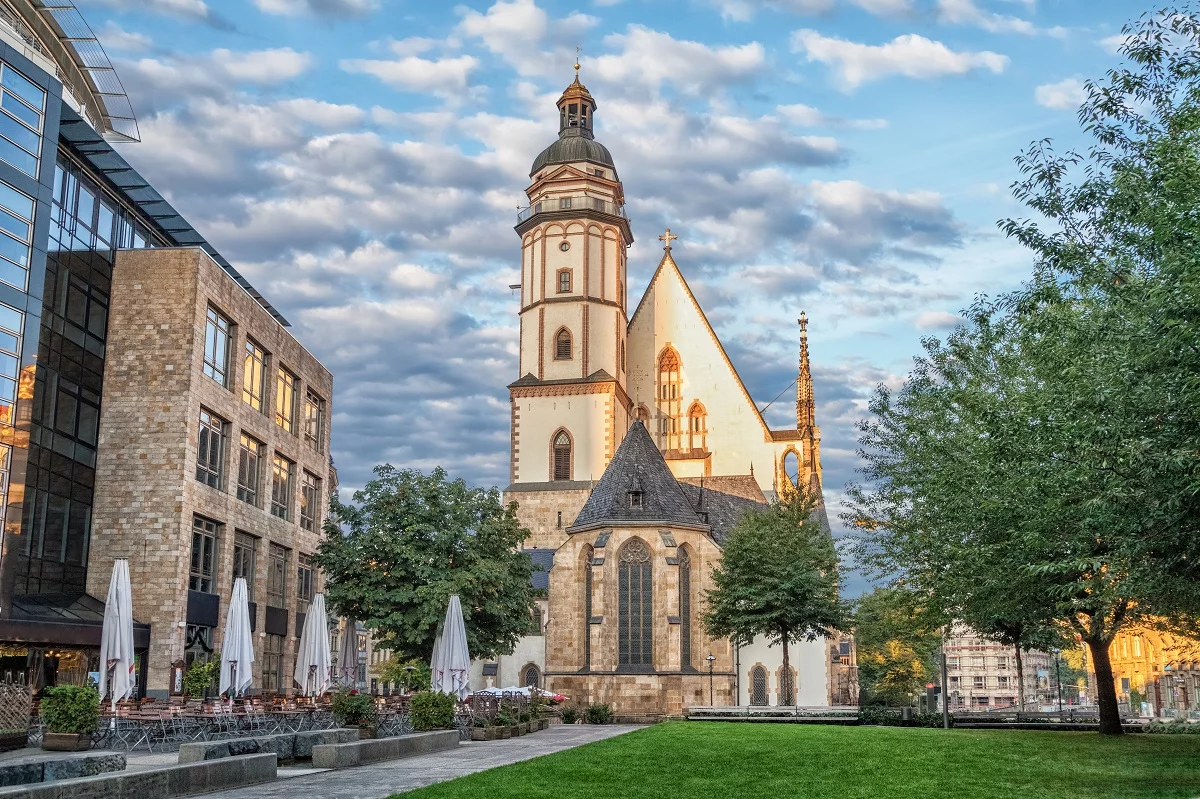
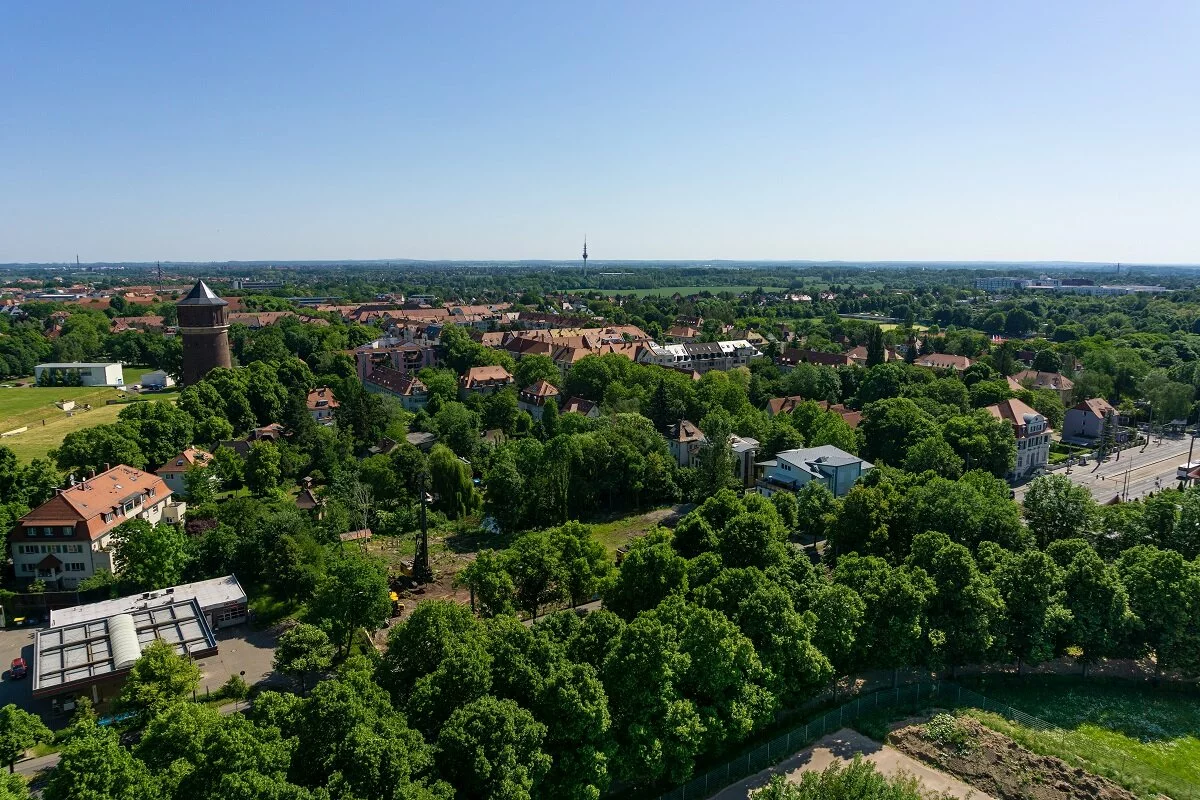

Irina, who has lived in Leipzig for eight years, told us about life in that city (the interview was conducted in 2023):
— I love Leipzig very much. It has everything I need: a well-developed infrastructure, wonderful nature (parks, lakes) and a slightly provincial serenity. I’m not under constant stress here. There are no crowds in the subways, many residents ride bicycles, fewer moody people.
Here are the moments that are specific to Leipzig that I can point out:
- First of all, the Germans from East Germany are more open. Compared to Bonn and Schwäbisch-Gmünd, I realized that here I had no problem making new friends at all. Here colleagues immediately invited me to visit them and introduced me to other people. It was easier for me to socialize at work.
- The cost of renting housing and real estate in Leipzig is much more affordable. I know that many East Germans working in large companies in the West return to Leipzig to build houses. They would never have enough money for that in Bavaria.
- Leipzig is also very beautiful. High ceilings with patterns, parquet in the corridors, houses from the 1900s, the most beautiful train station in Germany...
- The city does not stand still. Leipzig is home to BMW, Porsche, DHL Hub, Amazon Hub. There are a lot of E-Commerce companies. More and more companies are opening representative offices here.
- Infrastructure. Stadium, university, airport, fairs, opera, philharmonic, theaters, restaurants, fitness centers, swimming pools and much more.
- From Leipzig it is easy to get to other cities. Berlin, for example, is a stone's throw away (1 hour 15 minutes). Moreover, I know many people who live in Leipzig and work in Berlin. With the development of home offices this model is even more relevant.
- Of course, I realize that I could earn and spend a lot more in West Germany, but as I got older I began to appreciate comfort and quality of life more.
Do you want to share your personal experience of relocating and living in another country? Email us at info@realting.com. We will be happy to tell your story.
Author
I am responsible for editorial work. I write expert interviews and guides.








